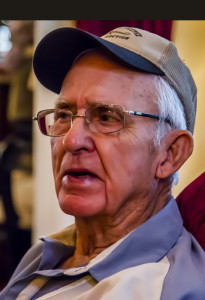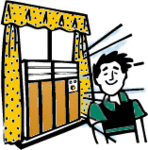First I just want to say what a great time we had at the launch party for the Winnsboro History Book published by Arcadia Publishing. This was the first time for my co-author, Bill Jones, to experience a book signing event, and he was so surprised that so many people were interested in him and his book. Not me. As the official Winnsboro Historian and an all-around great guy, he is a real treasure in our community and it was my honor to work with him on this book.
A recent column in the Dallas Morning News was quite interesting, and had some information that I’ll admit was a huge surprise. Did you know that air conditioning in the United States has a global-warming impact equivalent to every U.S. household driving an extra 10,000 miles a year?
That is a statistic Leon Neyfakh, a staff writer for the Boston Globe cited in his article A/C Alternatives, where he said, “Refrigerating ourselves isn’t the coolest way to live.”
I also learned that A/C technology was developed in 1902, and the first window unit was marketed in 1939. Just a bit of trivia should you ever get this question in a game.
Neyfakh is strongly encouraging us to consider adapting to a life without air conditioning, giving lots of examples of ways we can adapt to the heat. He asks why we spend so much money on air conditioning office building just so men and women can go to work in business suits. Good question. Maybe we should take the same approach as our southern neighbors who start the workday early in the morning, stop at noon for a meal and a siesta, then resume work late in the afternoon, followed by an evening meal and time spent outdoors with neighbors.
The article is well worth the read for suggestions on how to minimize our dependence on air conditioning that would also bring other benefits, such as being active outdoors in the community in the evenings. I have fond memories of my childhood summer evenings gathered with neighborhood kids to play games. Adults would sit on porches and visit, and if it was really hot, we’d invite friends to come and sit in the basement and have some iced tea. Basements were always a cool refuge on a sweltering summer day.
Since my internal thermostat no longer works, I cannot imagine living without A/C, but I do believe in limiting it as much as possible. We keep our house thermostat at 78 most of the time and use fans. I wish that more stores and restaurants would keep their thermostats set higher. I’ve walked into some that are so cold it was like stepping into an arctic blast, and I have learned to take a sweater to some of those places.
What do you think? Could you live without A/C? Do you try to conserve energy while using A/C?
Now something to think about from Mallard Fillmore:
Mallard is holding a news conference: U.S. Foreign-Policy-Issue Brief #32. He reads from a prepared statement, “Obviously, we must determine whether to support the regimes now in power…so they can continue to hate us at current levels… or the rebel forces… so that once they are in power… they can hate us. Alternatively we can back groups that, to keep popular support, pretend to hate us… while behind the scenes… they really hate us, too.
Then from off camera comes, “It’s all our fault that they hate us!!”
Mallard says, “I was wondering when the media were gonna show up.”




I keep the heat at 68 or lower in the winter, simply because we can’t afford it otherwise. And in the summer I turn on the A/C when it hits 75. We always had A/C – even though we grew up poor – my brother had asthma, it was doctor recommended.
Yolanda, I noticed when my husband’s asthma gets bad, we do have to turn the air conditioning down.
Have you ever heard of “poor man’s air conditioning”? We didn’t have A/C and in the sweltering summer days we would turn on the hose and drench ourselves from head to toe. Then let the evaporation cool us off. I still do that sometimes when I am working out with my big animals in the mornings. It can get awfully hot here in TX by 7 in the morning, and if I work until 9, I’m toast. 🙂